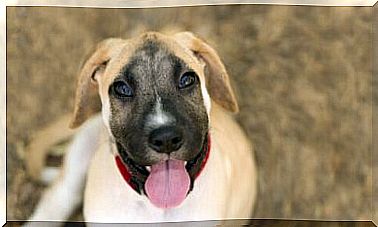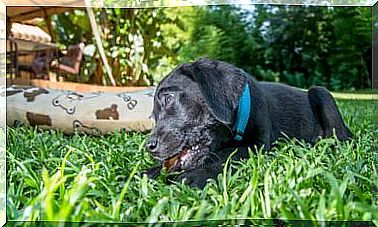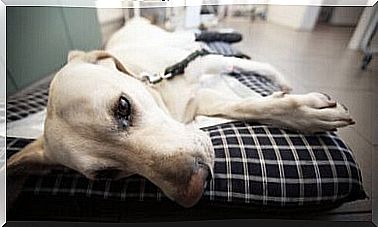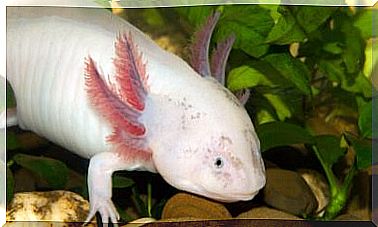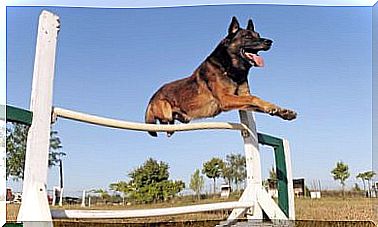The Right Diet For Dogs With Irritable Bowels
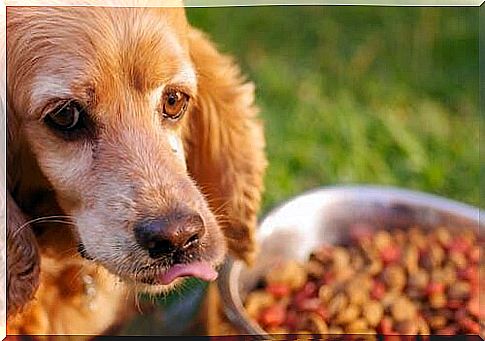
Unlike other dogs, those with irritable bowels need special care. Otherwise, their condition could worsen and lead to serious illness. These dogs can develop a wide range of symptoms, including seasonal or respiratory allergies, itchy skin, and coat problems. Episodes of diarrhea and inability to gain weight are also common.
In turn, these symptoms can be associated with immune system diseases such as arthritis, irritable bowel disease, diabetes, and other problems. In this article, we will find out what is the right diet for dogs with irritable bowels.
Irritable bowel syndrome
The walls of the intestine are an epithelium capable of absorbing substances. This ability is essential for getting the right amount of nutrients from food. Under normal conditions, the permeability of the intestine is selective, that is, it operates a strict control of the substances that can enter the bloodstream.
When dogs suffer from irritable bowel, bowel function loses its effectiveness. As a result, food fragments, toxins and digested bacteria partially cross the intestinal barrier.
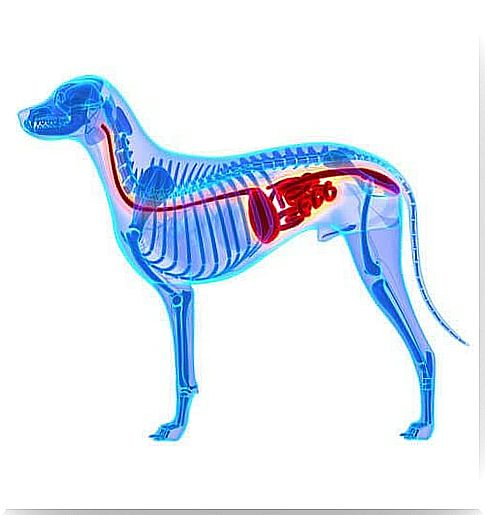
This ineffective selection primarily causes digestive problems, such as incomplete absorption of nutrients. It also causes the digestive system to be unable to distinguish the presence in the blood of compounds that the immune system identifies as foreign.
In the face of such an attack, the immune system responds with the weapons it possesses, resulting in inflammation and allergic reactions.
The diet of a dog with an irritable bowel
When an intestinal problem arises, the dog’s body begins to perceive food as an enemy. This is why there are so many dogs that are allergic or react badly to proteins, many vegetables and grains.
This confronts you with very specific choices when it comes to diet. The worst and saddest thing about this condition is that the dog often plunges into a chronic state of inflammation, discomfort and distress.
What should a dog with irritable bowel eat?
The key to recovering from irritable bowel syndrome is to find out what will fill these gaps. Below, we will tell you which are the most suitable foods and we will give you some tips to take care of a dog with an irritable bowel.
A three-step strategy is recommended:
- Eliminate inflammation.
- Using the diet to heal him.
- Triggering a reaction from the immune system.
1. Eliminate inflammation
Some of the most irritating substances to the dog’s digestive system are vaccines and medications.
Vaccines challenge the immune system by forcing it to treat a disease in an unnatural way. Each year, our dogs’ immune systems are attacked by the combined action of vaccines that force an immune response.
Instead of getting vaccinated annually, you may want to consider extending the period. The only exception is the rabies vaccine, which must be given at least every three years.
Extensive research shows that a single vaccine can effectively protect your dog for seven or more years. To make sure of this, you may want to have a blood test that checks the levels of antibodies against the most common diseases.
As for flea, tick and parasite medications, try using natural repellents. If you have chosen flea medications, it is a good idea to follow a detox using herbs. However, in each of these cases, dogs with irritable bowels must always follow a balanced diet.
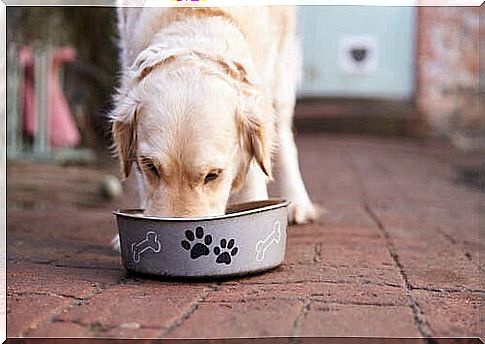
2. Use the diet to make him heal
The other irritant that is damaging to your dog’s gut is his diet. You may never have thought about it, but preservative-filled kibble and canned foods are the leading cause of distress for dogs with irritable bowels.
In fact, the ingredients of which industrial foods are made can cause inflammation in those dogs that have a tendency to stomach problems.
The truth is that some ingredients in feed can put our dogs’ health at risk, causing obesity and allergies. Diet can be the indirect cause of other diseases, such as diabetes, arthritis and inflammation, food intolerances and nutritional deficiencies.
Therefore, it is good to avoid excess carbohydrates, especially in the form of cereals, foods rich in preservatives and dairy products.
It is good to know that fresh food is best for dogs with irritable bowels. This includes vegetables, fruits and meat, even raw. Your dog needs a diet rich in live enzymes, biological nutrients, protective antioxidants, healthy fats, abundant proteins and immune boosters, so it must contain:
- Meat : when it is rich in Omega 3 and fatty acids, it reduces inflammation. Meat can be turkey, salmon, duck, deer and other wild animals. Fish is welcome. Watch out for chicken and pork instead, as they are high in omega 6 and won’t help your dog heal.
- Vegetables : They are a source of vitamins, minerals and fiber. Give him green leafy vegetables like broccoli, spinach and kale and yellow-orange vegetables like squash, peppers and carrots. Other possibilities include mushrooms, green beans, cauliflower, and Brussels sprouts. These options are low in carbohydrates and high in fiber, antioxidants, vitamins and minerals.

- Fruit : In small quantities, fruit can provide great health benefits for your dog. Blueberries, blackberries, raspberries, apples and many others are great. Always make sure the fruit comes from before giving it to your dog.
3. Supplements to regulate the immune system
In addition to providing your pet with a balanced diet, based on their needs, you may also consider using some natural supplements to regulate the immune system:
- Bone broth: Bone broth contains amino acids such as proline, glycine and L-glutamine which are needed to heal the gut.
- Prebiotics and Probiotics : These supplements support the balance of good bacteria in your dog’s microbiome.
- Kefir : Another source of probiotics, especially goat milk kefir or coconut water.
- Digestive enzymes : Help break down food particles before they leave the intestines, reducing symptoms.
- Turmeric : Turmeric is said to have anti-inflammatory, antibacterial and antifungal properties, therefore, its consumption is recommended – always within a balanced diet.
- Ginger : stimulates digestive enzymes and increases bile production to improve digestive function.
Dogs with irritable bowels need the proper diet
Feeding a dog with irritable bowel is a commitment to be taken seriously. Providing your dog with a healthy diet long enough for him to improve and then go back to kibble and snacks does nothing. In fact, in these cases the fight against the disease is only at the beginning and is very likely to recur.
